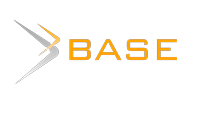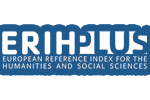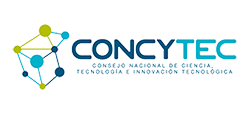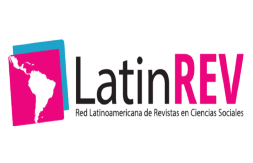About the Journal
Focus and Scope
Online ISSN: 2616-9541 Print ISSN: 2070-836X
Aporte Santiaguino is a research journal edited by the Directorate of the Research Institute - Vice-Rectorate for Research of the National University «Santiago Antúnez de Mayolo» (Huaraz, Peru). It aims to publish and disseminate the results of research in science and engineering science and engineering conducted by the Santiago scientific community, as well as other universities, research centers and institutes both nationally and internationally. The scope of the magazine is worldwide.
As of 2018, preference will be given to those manuscripts related to the areas of:
- Engineering: Environmental and Sanitary Engineering, Agricultural and Agronomy Engineering, Civil Engineering and Architecture, Mining and Metallurgy Engineering, Industrial and Food Engineering, Agroindustrial Engineering and Computer Science.
- Basic sciences: Biology, Applied Mathematics, Chemistry, Physics
The target audience of the magazine is primarily the academic, engineering research and basic sciences community.
The content of the contributions is the sole responsibility of the authors, and in no way of the journal or of the entities for which the authors work.
The Aporte Santiaguino Magazine is indexed in:









European Science Foundation (ESF)


Peer Evaluation Process
The publisher verifies if the material submitted conforms to the editorial line and conditions requested in this publication standard. If there is compliance, the article is submitted to a peer arbitration system, using at least two (02) external reviewers or evaluators, to express their opinions (According to the “evaluation form”), recommending the acceptance or rejection of the article. In case the opinions are contradictory, the Editorial Committee will assign a third evaluator.
If the article does not conform to the editorial line or conditions requested in this Publication Standard, the Editor reserves the right to send a report to the author to change or redo his article, totally or partially, with the authors having to start the process again of sending your work. In the worst case, the manuscript is rejected and communicated to the authors, attaching a report with the reasons for the denial.
Once the opinions have been received, the editor will analyze them to make the decision on the publication of the manuscript. Any type of opinion is final and there are four possible ones, which are described below.
- Accepted in its current form. The manuscript does not need modifications and can be published in its current state.
- Accepted with minimum adjustments. The manuscript can be published if minor modifications are made according to the comments of the reviewers. The magazine's evaluation committee verifies the corrections. It does not require a new evaluation by the arbitrators. The modified version of the article must be accompanied by the change guide in Word.
- Correct and reevaluate. The manuscript requires major modifications and must be resubmitted for a next evaluation round. The authors must submit a new version in accordance with the comments of the reviewers, who will reevaluate the article to verify its quality and attention to the suggested modifications. The modified version of the article must be accompanied by the change guide in Word.
- Manuscript publication is not recommended. The causes of rejection will be sent to the author and there is no possibility of a reevaluation.
The average response time between the reception of the article and the decision of the editorial committee varies between one to four months, depending on the speed of our reviewers and the response of the authors.
The main author of the article has the right to consult us at any time about the progress of the review of his article, for this he must consider the revision times that will be communicated to him when receiving his article; The response of the observations must be given within two weeks of sending the file, in case it requires more time you must communicate it previously; If there is no response within two weeks of sending the communication with the comments, the article will be rejected.
Peer review is a voluntary process that is performed free of charge. Arbitrators are not authorized to copy the manuscripts under review for private use or to send these manuscripts to third parties, in whole or in part.
Publication frecuency
The research journal Aporte Santiaguino is a semi-annual scientific publication, with an annual volume divided into two numbers (1: January-June; 2: July-December). Each number is published in electronic version.
About this publishing system
This journal uses Open Journal Systems, which is an open access journal manager and software developed, funded and distributed free of charge by the Public Knowledge Project subject to the GNU General Public License.
Editorial Policies
Section Policies:
Editorial
It will be written by invitation of the Editor of the magazine Aporte Santiaguino. The editorial constitutes an opinion on a specific topic, the policy of the journal and of research in science and engineering.
Original Research Articles
They are primary, unpublished articles that expose the results of completed research work or an advance with preliminary results in science and engineering issues and constitute contributions to the knowledge and development or application of technological systems. The body is organized in: Introduction, Materials and methods, Results, Discussion and Conclusions, the total length of the manuscript, including bibliographic references, should not be more than twelve (12) pages. The illustrations (Tables and Figures) should be only those necessary for a better presentation of the results.
Review Article (reviews)
The review article aims to synthesize the current state of knowledge about a specific topic through a bibliographic review. In turn, a bibliographic review is a systematic, explicit and reproducible method to identify, evaluate and synthesize the existing body of work done and registered, produced by researchers, academics and professionals. The body is organized in: Introduction, Materials and Methods, Development and discussion, Conclusion, References.
Digital Preservation
The magazine has preservation policies and digital support, through the activation of LOCKSS OJS.
LOCKSS Open Journal Systems is compatible with the LOCKSS (Lots of Copies Keep Stuff Safe) system to ensure a secure and permanent archive for the journal content.
Open Journal Systems also supports the CLOCKSS (Controlled Lots of Copies Keep Stuff Safe) system to ensure a permanent and secure archive for the magazine. CLOCKSS is based on the open source software LOCKSS developed at the Stanford University Library, which allows libraries to keep their chosen web journals by regularly checking the websites of registered journals for recently published content and archiving it. Each file is constantly validated against other library cache memories and, if it is detected that the content has been corrupted or lost, the other cache memories or the magazine are used to restore it.
The Aporte Santiaguino Magazine - Research Institute of the UNASAM keeps and backs up all the contents of the magazine in digital media and data storage devices.

Open Access Policy
This magazine provides immediate open access to its content, based on the principle that offering the public free access to research helps further global knowledge exchange.
All contents of Santiaguino Contribution are published under the Creative Commons Attribution 4.0 International Non-commercial license, and can be used free of charge for non-commercial purposes, giving credit to the authors and the magazine.
Publication Cost
The research magazine Aporte Santiaguino does not charge for submission of articles, neither during the editing process nor for publication.
Copyright
The content of each article is the responsibility of the author (s) and they retain their copyright and grant the journal the publication right with the work, simultaneously licensed under an International Creative Commons Attribution-NonCommercial-ShareAlike 4.0 License that allows others to share the work with a recognition of the authorship of the work and the initial publication in this magazine.
Authors are allowed and encouraged to publish their work online (for example, in institutional repositories or on their website) before and during the submission process, as it can lead to productive exchanges, as well as further citation of published work. .
Code of Ethics Adoption
Authors should strictly keep the rules on ethics in the publication as established in the Code of Ethics for Scientific Research of the National University Santiago Antúnez de Mayolo. The falsification or invention of data, plagiarism, including the duplicate publication of the same work of the authors without proper citation, and misappropriation of the work, are unacceptable practices. Cases of ethical misconduct are treated very seriously and will be treated in accordance with the provisions of the Code established by the institution.
Plagiarism Detection
Plagiarism, including duplicate work publication, in whole or in part, without proper citation is not admitted by the journal. Manuscripts sent to the magazine, to verify their originality, are reviewed using PlagScan anti-plagiarism software
The APORTE SANTIAGUINO magazine of the National University Santiago Antúnez de Mayolo this work is licensed under an International Creative Commons Attribution-NonCommercial-ShareAlike 4.0 License
Online ISSN: 2616-9541 Print ISSN: 2070-836X
Publishing Institution
National University Santiago Antúnez de Mayolo
Megazine History
The Aporte Santiaguino Magazine has been published since 2008 and began with the objective of publishing and disseminating the results of the original research in science, technology and humanities, but since 2018 articles have been published in the areas of Science and Engineering.
As of 2010 Aporte Santiaguino receives accreditation from Latindex. To his trajectory has been added the accreditation and acceptance in other important databases and regional and global scientific information systems such as: Latindex Catalog, ERIH-PLUS, REDIB, MIAR, DOAJ among others.
As of 2018, in the Aporte Santiaguino Magazine, the electronic publication modality and call for the reception of manuscripts in continuous form was adopted.










